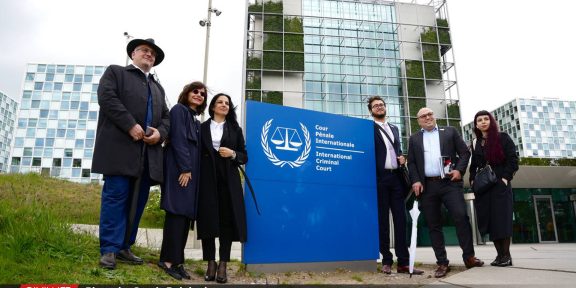By Mark Dovich
A group of self-styled Azerbaijani environmental activists prevented Russian peacekeepers Tuesday from escorting about two dozen Armenians trying to return to their homes in Nagorno-Karabakh, according to a police statement.
Gegham Stepanyan, Nagorno-Karabakh’s Human Rights Defender, said the Azerbaijanis held up the Russian peacekeepers for about five hours near the city of Shushi “despite a prearranged agreement” to allow the convoy of 27 Armenians, including children, elderly people, and people with disabilities, to pass.
“During the negotiations, the well-being of 4 civilians worsened,” according to Stepanyan, adding that the Azerbaijanis eventually permitted the peacekeepers to transport those four people to Stepanakert for medical care. (The Armenpress news agency reported Wednesday that those four people “are in non-life threatening condition.”)
The other 23 Armenians in the convoy returned to Goris “after fruitless negotiations between the Russian side and the Azerbaijanis,” Stepanyan said, referring to the last major town in Armenia on the road to Nagorno-Karabakh.
Hundreds of Nagorno-Karabakh residents have been stranded in Goris since Azerbaijan’s blockade of the Lachin corridor, the only overland route connecting Armenia and Nagorno-Karabakh, began last December.
As of early afternoon Wednesday, Azerbaijan has not commented publicly on Tuesday’s incident, aside from an article from the Azertag news agency quoting a doctor named Vilad Aliyev, who said he provided first aid to the Armenians during the delay.
The authorities in Nagorno-Karabakh and Armenia have not made mention of that publicly.
The Russian peacekeepers did not include the incident in their daily bulletin for Tuesday.
Azerbaijan’s blockade of Nagorno-Karabakh entered its 115th day Wednesday, despite an International Court of Justice ruling ordering the blockade to be lifted. The blockade has prompted severe shortages of food, medicine, energy, and other necessities throughout Nagorno-Karabakh.
















